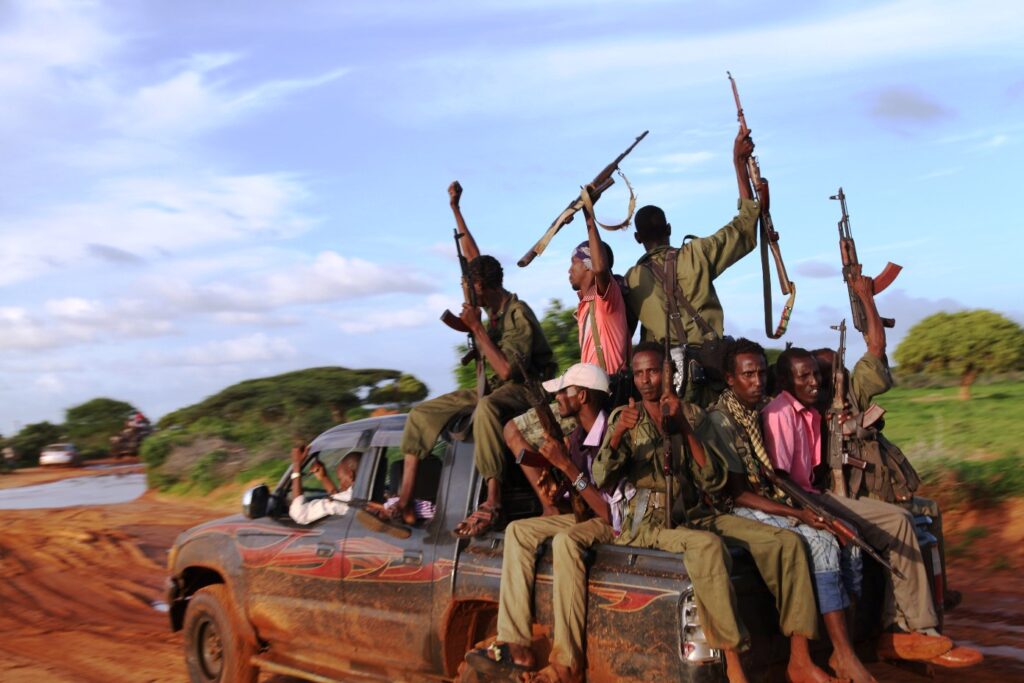As the world grapples with the impact of the global recession caused by the Covid 19 pandemic, the impact of the Russia – Ukraine war, the effects of climate change, and other challenges, terrorists and violent extremists, including Da’esh, Al-Qaida, and their affiliates, continue to intensify their activities on the African continent aggravating an already difficult situation.
The response has been, by and large, heavy on the military. Still, countries are increasingly focusing on prevention with a particular focus on addressing the root causes, such as poverty reduction, strengthening institutional capacity to respond to the needs of their populations, and local reconciliation. One issue, in particular, has captured the attention of many experts working to address the root causes of radicalization, which is impunity. Indeed, the root cause of radicalization, cyclical violence, and the war was a culture of impunity.
Also Read: Peace and Politics: Can Congo achieve economic stability?
A study by the UNDP released in 2017 called “Journey to Extremism” found that the tipping point for many young people who joined voluntarily violent organizations such as Al Shabaab and Boko Haram was perceived state violence, abuse of power, and or lack of accountability when security forces commit crimes against citizens. In many countries affected by terrorism, another complaint has been the slow decision-making processes of the courts. Many perceive justice delayed, is itself justice denied. It takes, on average, 2-3 years for the courts to give their judgment on a case. While for example, courts set up by Al Shabaab in parts of Somalia deliver swift and what is seen as “fair” judgments.
The good news is that African countries are increasingly aware of the need to deploy not only their military to degrade extremists organizations, but also a combination of political tools, such as strengthening institutional capacity by reinforcing the ability of the state to respond to the needs of the populations, reconciliation of communities, reforms of the judiciary to fight impunity, economic mechanism to deprive terrorists of revenues and ideological clarity to counter radical indoctrination.
African countries are also raising their voice that the problem of terrorism is not an African problem alone and that the response to conflicts on the continent is dramatically underfunded compared to other crises around the globe. The countries affected are mobilizing the international community for better equipment and funding for peace support operations, arguing that no continent is an island and that instability in one country in today’s interconnected world is instability everywhere. The debate about access to UN-assessed contributions for AU-led peace operations has never been more timely. More importantly, they also call for a fairer, more inclusive global governance system adapted to the realities of our time. In this system, double standards are the exception and not the norm.
In an imperfect world, and as we hurtle deeper into the polycrisis, citizens are also mobilizing, and a new approach has been developed by the very communities that suffer most from conflict. This could be a game-changer. There is a lot more that different communities around the world have in common, and our common humanity and shared values offer a sense of hope and a positive way forward. The need for dignity, solidarity, and humility are recurrent themes in Latin America, Asia, Europe, the Middle East, and Africa.
Read Also: Abiy’s Tigray conflict a burden to Ethiopia’s economy
The importance of dialogue, post-traumatic stress disorder for affected communities and combatants, and the fact that peace is not a one-time event and that we must work at it daily. Communities, civil society, and governments know what does and doesn’t work in peace-making and give their feedback and inputs into the principles before they are launched in January next year.
By bringing these learnings together in a set of principles and applying these to conflicts and fragile states worldwide, we can reduce the chance of conflicts, bring active conflicts to an end and prevent conflicts from recurring (which 50% do).
Fighting terrorism requires governments to adopt a multi-pronged approach and a global governance system that puts solidarity first and, most importantly, citizens’ engagement based on a set of values that remind our shared humanity.
Ambassador Frederic Ngoga-Gateretse is the senior advisor for partnerships, the AU Border Program and regional security mechanisms in the office of the Commissioner for Political Affairs and Peace and Security of the African Union Commission.
He served previously under the old AU Commission structure as the Head of the Conflict Prevention and Early Warning Division at the African Union Commission.
